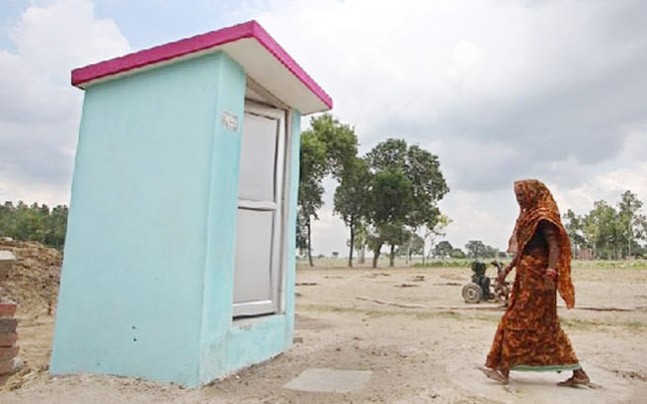Bhubaneswar: With the aim to improve sanitation facility in rural areas, the state government has drafted Rural Sanitation Policy to make every village ‘Swachh and Sustha’ (clean and healthy).
The Panchyati Raj and Drinking Water Department has drafted the policy. The vision of the policy is to form Swachh and Sustha gram where all the rural habitats have access to improved sanitation, safe hygienic behaviour is the norm, recycling of solid and liquid waste is widely practiced, the environment is waste-free, clean and unpolluted leading to an enhanced quality of life with improved health, general well-being, and social equity fostering economic growth.
The department claimed that with rapid progress under Swachh Bharat Mission scheme in rural Odisha, the state has achieved 100 per cent coverage in construction of individual household toilets. The coverage in schools stands at 76 per cent.
Through this policy, the government aimed to achieve sustained open defecation free (ODF) villages by ensuring continuous usage of toilets by every member of each household within the village/GP. The project is set to be completed by 2024.
The government will ensure proper collection of all domestic solid and liquid waste including faecal sludge/septage from on-site installations (septic tanks, pit latrines, etc.) in a time-bound manner and will make proper treatment of the domestic wastes.
District level plans will be developed in consultation with the stakeholders ensuring inclusive sanitation for one and all. The policy will impress upon having multi thronged district specific strategies for achieving sanitation goals for districts.
To ensure proper implementation of the policy, the government has decided to form committees at state level, block level, GP level and village level.
Village Water & Sanitation Committee (VWSC) will work to provide equitable access and supply to all households and will be responsible for planning, design and implementation of all water and sanitation activities in the village.
The Village Water & Sanitation Committee will be authorised to collect fines and penalties, as levied by GP for non-compliance of management of sanitation services. It will also have the power to collect tariff/user charges from the village community for the works related to water and sanitation sector. VWSC can engage the services of a technical person or accountant for planning, designing, construction of water and sanitation services, the draft policy said.
At least 50 per cent representation of women in decision-making agencies that are part of the sanitation ecosystem will be notified later.
For Menstrual Hygiene Management (MHM), adolescent girls will have a safe, private place – at school and home— to change, wash and store menstrual products.
All schools will have basic water and sanitation infrastructure so that girls and female staff including the differently abled can privately manage menstruation hygienically and with dignity. Safe menstrual hygiene disposal options including collection and disposal bins will be ensured.
A State Sanitation Fund will be formed to execute the policy. Funds will be collected from private partners, CSR grants, District Mineral Fund (DMF), MP Local Area Development (MPLAD) Fund and MLA Local Area Development (MLALAD) fund, international funding agencies and sanitation linked financial markets.
